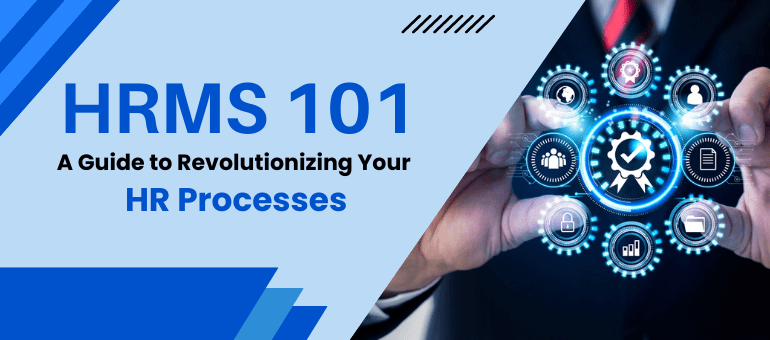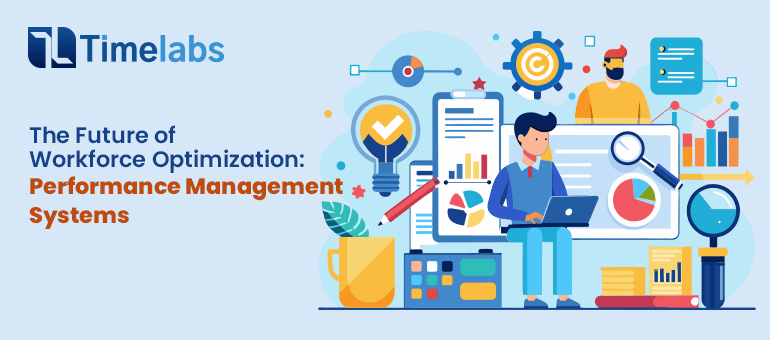Many organisations need aid with the issue of a talent gap among their personnel. Leaders in the corporate sector have been compelled to reevaluate their approach to employee training due to the persistent lack of vital skills across many industries. As a result, upskilling has become a critical component of most employee development and training initiatives taken by HRMS (Human Resources Management System).
A firm can profit significantly by increasing staff abilities, giving training, and fostering growth, especially in the contemporary technology-dominated economy.
This paper will address the importance of upskilling for organisations and how individuals can embark on their upskilling journeys.
What is upskilling?
The process of upskilling has taken on a position of crucial importance for firms trying to maintain their competitiveness and agility in the dynamic and constantly changing modern workplace. This strategic approach has gained prominence as a way to equip employees with the necessary abilities to successfully manage the increasing demands of their jobs and prepare them for potential moves into different positions within the company. Upskilling involves providing staff with the necessary training, intensive career chances, and a wealth of tools to expand and enhance their skills. The primary objective is to ensure they stay abreast of the quick technological advancements and constantly changing trends in their particular industries.
Organisations face an unavoidable imperative as industries experience transformative shifts and technological disruptions that reshape conventional operational paradigms: the need to foster a versatile, adaptable workforce skilled at utilising new tools and methodologies. In this situation, upskilling is a proactive means of addressing the issues brought on by these disruptive forces. Businesses may close skill gaps, encourage creativity, and maintain a competitive edge by giving employees ongoing opportunities for growth and development.
Due to the rapid speed of technological progress, specialised skill sets can quickly become obsolete. Therefore, companies supporting upskilling initiatives exhibit a forward-thinking attitude, recognizing the importance of developing new skill sets for employee learning and development.
Evaluating skill gaps, creating and implementing focused training programmes, and providing ongoing learning opportunities are essential elements of successful upskilling projects. These elements work together in harmony to fill up existing skill shortages and promote a culture of lifelong learning and professional development inside the company. Since upskilled workers are more adaptable, self-assured, and motivated, the advantages surpass immediate operational requirements. This can create a more motivated staff prepared to overcome obstacles and seize opportunities in a constantly shifting environment.
Why Upskilling is More Important than Ever
-
Technology is advancing quickly
The technological advances of the digital age have replaced traditional job positions and necessitated the development of new skill sets. Organisations must invest in upskilling their staff to ensure they can effectively use developing technology and stay ahead of the curve if they want to succeed in this digital era.
Example: For instance, adopting automation and artificial intelligence requires workers to understand programming and data analysis, necessitating upskilling operations.
-
Increased staff Engagement and Retention
Businesses show their attention to workforce development by giving opportunities for upskilling. This promotes employee upskilling and job satisfaction, resulting in improved retention rates. Employees are more likely to be invested in their work and display higher productivity when accessing ongoing learning opportunities and a clear path for professional progress.
Example: As individuals see long-term career potential within the firm, implementing upskilling courses helps reduce employee turnover and establish a more stable workforce.
-
Employee future-proofing
Due to the continuously altering business climate, organisations must guarantee their personnel are prepared for the future. Employers may make sure that their workforce is current, flexible, and equipped to handle industry innovations and difficulties in the future by upskilling them. Additionally, organisations can spend a little money employing new workers from outside when they aid present staff in upskilling.
Example: Consider a corporation with a team that excels at various duties because they continually learn new abilities. In contrast to other groups, this one can withstand market swings while remaining strong. This helps the firm prosper and keep its lead.
Value of Skill Development in the Modern Era
Learning new skills has become immensely important to succeed in a constantly expanding field in today’s fast-paced world. It’s amazing how quickly new technology, adjusts to how the economy functions and alterations to how businesses are organised might render what we once knew obsolete. Upskilling, or learning new skills to advance your career, is incredibly important now. This essay discusses how upskilling is beneficial and aids in personal development, coping with change, and having a successful profession.
-
Utilising What Technology Offers
Consider the newest technology, such as robotics, intelligent computers, and data analytics. They’re drastically altering the way we work. Skills like coding, handling data, comprehending how computers learn, and maintaining internet security are becoming increasingly important in the modern workplace. Organisations may only value you highly if you understand how to use technology to improve things as those who can.
-
Getting Used to Job Changes
Considering how interconnected everything is today, job changes occur frequently. Some tasks may require special equipment or distinct locations. These advances make it more complicated than ever to find a job that’s ideal for you. Strengthening your talents can help with that. You can change careers or relocate to find work if you are good at picking up new skills. This way, you can continue making money even if your circumstances change.
-
Keeping your career-relevant
Your career will advance more slowly if you stick with your existing skills and wait to pick up any new ones. You might think that you are no longer developing. But if you continue to study, you will remain valuable to your career. Learning further information shows your dedication to improving yourself and makes you a valuable team member. By adjusting this way, you can become an expert and feel more confident in your profession.
-
Fostering Creativity and Innovation:
Upskilling increases creativity by exposing individuals to fresh notions, abilities, and views. The synthesis of many skill sets frequently creates creative approaches to challenging issues. Professionals who are actively trying to increase their knowledge bases are better suited to question convention and promote revolutionary changes inside their organisations. Increased job satisfaction and a vibrant workplace are the outcomes of this.
-
Personal development and ongoing education
Beyond the benefits to your career, upgrading your skills contributes to your happiness and personal development. Constant learning encourages intellectual curiosity and the pursuit of knowledge. It fosters a growth mentality encouraging people to embrace challenges, learn from failures, and relentlessly pursue advancement. Learning new skills can be fundamentally fulfilling, improving self-esteem and general well-being.
Benefits of Upskilling
Personnel upskilling has a wealth of advantages for both people and businesses. Some notable benefits include:
-
Employee Performance is Improved
Through upskilling initiatives, employees gain new knowledge, enhance their current skills, and learn additional tools to carry out their responsibilities more successfully and efficiently. This results in Higher-quality output, greater productivity, and greater overall job satisfaction.
-
Enhanced Organisational Agility
Organisations that have employees with the most recent skills and competencies are more able to adapt quickly to market changes, industry upheavals, and new opportunities. Individuals with more advanced skills can better adapt to new procedures and technologies, promoting workplace innovation and efficiency.
-
Enhances Growth and Development
Providing growth and development opportunities boosts employee satisfaction, morale, and engagement. This results in higher employee retention rates, as indicated by the HR Software. Employee retention rates increase and recruitment costs decrease when staff members feel supported in their professional growth, preserving institutional knowledge.
Read more: Key Features of Timelabs Payroll Management SystemHow to design and plan upskilling process for your organisation?
Here is a detailed, step-by-step procedure that organisations can use to develop and carry out successful upskilling initiatives:
-
Perform a Complete Skills Assessment
The second step requires thoroughly evaluating the company’s current talent pool. This can be accomplished through staff surveys, performance reviews, and discussions with team leaders. Companies can target the precise skills that require upskilling by identifying skill gaps and potential development areas.
-
Define the learning goals
Businesses should clearly define learning objectives after identifying talent shortfalls. These goals ought to be SMART—specific, measurable, achievable, relevant, and time-limited. Clarity on the benefits that employees should acquire from the upskilling process comes from defining precise learning outcomes.
-
Create Customised Training Programmes
The next step is building specific training programmes or courses after setting learning objectives. It may be possible to ensure the content is accurate, timely, and in line with market trends by working with subject matter experts within the company or collaborating with other educational institutions. These courses can include mentorship sessions, practical projects, workshops, seminars, and online courses.
-
Select the Best Learning Modalities
Different employees have different learning preferences. In comparison, some might thrive in interactive workshops, others like self-paced online courses. Organisations should consider these preferences and implement various learning modalities to accommodate multiple learning styles. Giving people options promotes maximum involvement and effectiveness in the process of upskilling.
-
Identify Progress Checkpoints
To monitor the efficiency of the upskilling programmes, precise progress goals must be specified. These benchmarks operate as checkpoints to measure how well staff members are advancing towards their learning goals. Regular reviews confirm that personnel are on target and offer flexibility to make any necessary improvements to the upskilling method.
-
Create feedback loops
Feedback loops considerably improve the process of upskilling. Ask participants for comments frequently evaluating the training programmes’ effectiveness, relevance, and quality. This input can assist in identifying areas that need improvement and enable businesses to make the required improvements to improve the learning experience.
-
Encourage a culture of learning
Companies should foster a culture of continuing learning to guarantee the longevity of upskilling efforts. Allowing employees to pursue self-directed learning may empower your staff to take charge of their development. Employees who actively enrol in upskilling programmes exhibit the organisation’s commitment to growth and development by obtaining plaudits and promotions.
-
Measure and measure the impact
Measuring the results of the upskilling programmes is the third phase. Determine whether employees have acquired the needed skills successfully and whether this has resulted in increased job performance. Analyse whether the upskilling efforts have benefited the organisation’s innovation, efficiency, and adaptability.
Read more: Guide to Choosing the Right HR & Payroll Software for Your BusinessDifferent Methods of Upskilling in Organisations
-
Mentoring and peer education
Instead of formal training programmes, peer learning and mentoring are frequently more effective ways to upskill. The most effective way of employee training systems is to impart situation- or experience-specific knowledge through practical examples and real-world applications. Businesses should encourage experienced personnel to share their expertise with less-experienced staff rather than relying solely on course materials since this will foster a more natural and valuable learning process.
-
Job rotation and cross-training
Employees can grow professionally through cross-training and job rotation by taking on various responsibilities inside the company. Instead of relying on traditional classroom settings, people learn while working under the close supervision of more seasoned coworkers. Individuals gain practical skills through this hands-on training that they may use in their current or upcoming roles within the firm.
-
LXP and MMS Integration
Learning Management Systems (LMS) and Learning Experience Platforms (LXP) are excellent learning technologies enterprises can deploy. They operate as superpowers for managing development and learning. LMS platforms are ideal for supporting you in discovering a range of new topics because they organise, keep track of, and communicate the material. On the other hand, LXPs resemble personal assistants more. They give you the most significant outcomes by customising information to what you want.
Conclusion
Upskilling workers is highly crucial in the fast-expanding world of 2023. Consider it a prudent investment in human resource development planning as it increases performance, stimulates adaptability, and aids corporate success. People may manage their existing employment well and be prepared for whatever new possibilities occur by consistently learning and expanding their abilities. Businesses that foster skill development and lifetime learning will prosper as the economy evolves. They’ll have teams that can overcome problems and discover creative solutions. Learning new things keeps firms solid and competitive in our continuously changing environment. It resembles getting ready for success, both personally and collectively.



